Wagyu beef is like the Rolls Royce of beef, renowned around the world as one of the best meat products available. It’s understandable that many people are interested in how wagyu beef is made.
So what do Wagyu cows eat? Wagyu cows eat various types of grass as well as grains and proteins. Wagyu cows also eat okra and soybean. Wagyu cows are fed a high-energy diet of hay and legumes to help them develop their muscle fibers.
Snake River Farms is the place to go for Wagyu beef. The cattle here are treated like kings, and it shows in the amazing flavor of the meat. If you’re looking to try something truly special, you need to give Snake River Farms a try.
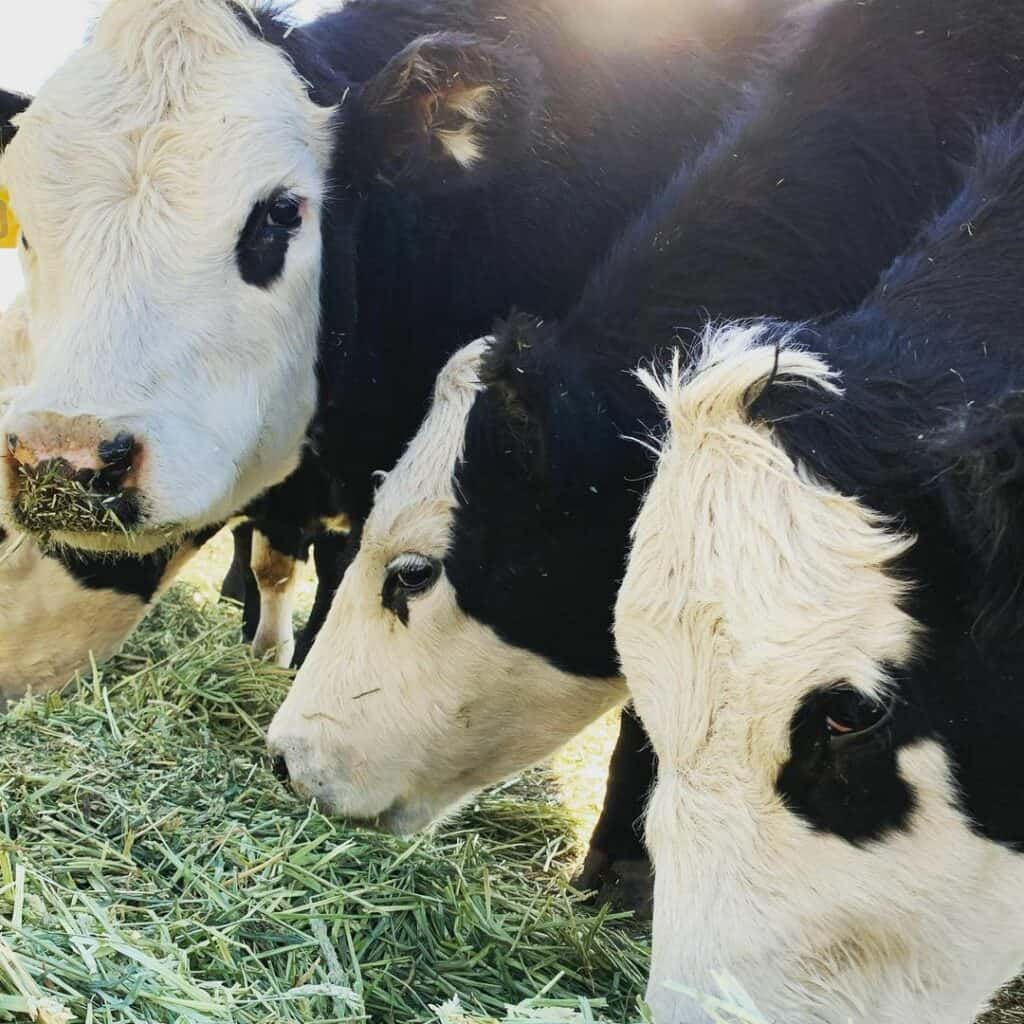

Along with the things that wagyu-producing cattle eat, it’s also important to consider when they are fed these things, as they have a different feeding schedule compared to most Western cattle. I’ll go into further detail about the wagyu cow diet as well as debunk a few myths about what Wagyu cows eat.
In this guide, I’m going to explore what wagyu cows eat and go into whether or not this is responsible for their meat’s excellent quality.
What Do Wagyu Cows Eat?
Wagyu cows have a remarkably varied diet for cattle, and it’s partly responsible for making them produce some of the best meat on the market.
They say that the typical Western cow takes about $2000 to raise, while wagyu cows cost about $30,000 over the course of their lives. A lot of this is due to the more luxurious diet that wagyu beef is raised on. This wagyu diet is regulated by the farmers raising them, ensuring that it’s kept within the strict guidelines imposed on the cows.
Over the course of years, wagyu farmers have perfected the art of growing these cows until they’re fit for slaughter, and the diets have been refined and are still being refined to the present day. It all starts during the cow’s first year of life, and its diet will be refined from that point on. So, what do they feed wagyu cows to make their meat so prestigious on the market?
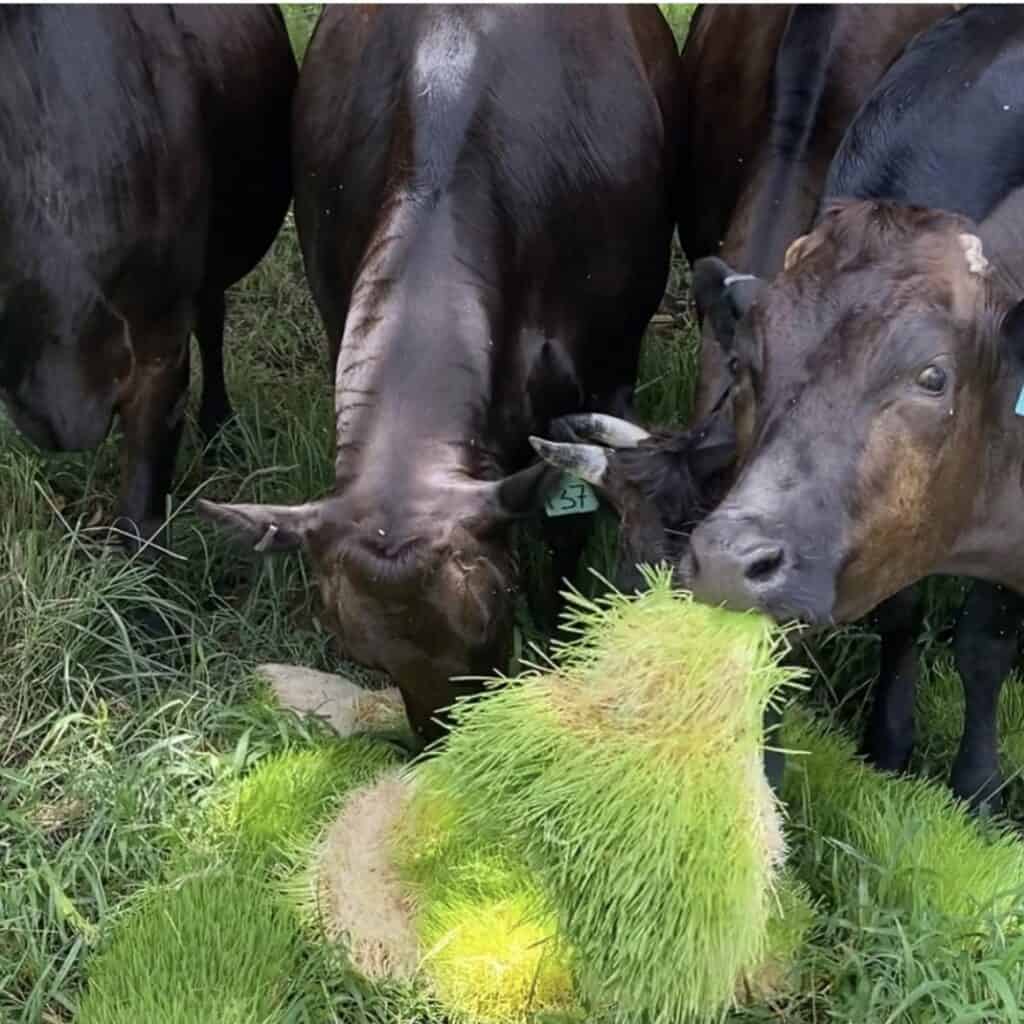
Now, let’s consider what are wagyu cows fed. One of the main building blocks in a wagyu cow’s diet is grass, as this ensures that it’s easier for the animal to digest foods in the future and to build muscle. Along with these benefits, the grass ensures that the cows get all of the required vitamins so that they can grow healthily, including Vitamin A.
Another factor that goes into making wagyu meat so much better than typical cows is the fact that they are allowed to graze freely out in pastures. Also, they are often penned with far fewer cows than in the West.
Whereas a wagyu cow will only be in a pen with about four other cows, an American farm would likely keep between 12 and 24 cows in a single pen.
To ensure that wagyu cows can get as much fat as they need to, they are fed about three times per day, and all of the ingredients in their diets are designed to give them as much energy as possible. This includes various types of grass like bermudagrass and even ryegrass that’s essential to the wagyu beef diet.
Alongside grass, these cows are also fed a variety of legumes and hay, including rice straw and alfalfa. Along with these high-energy additions to their diets, wagyu cows are also fed with foods that are high in protein to make it easier for them to develop their muscle fibers.
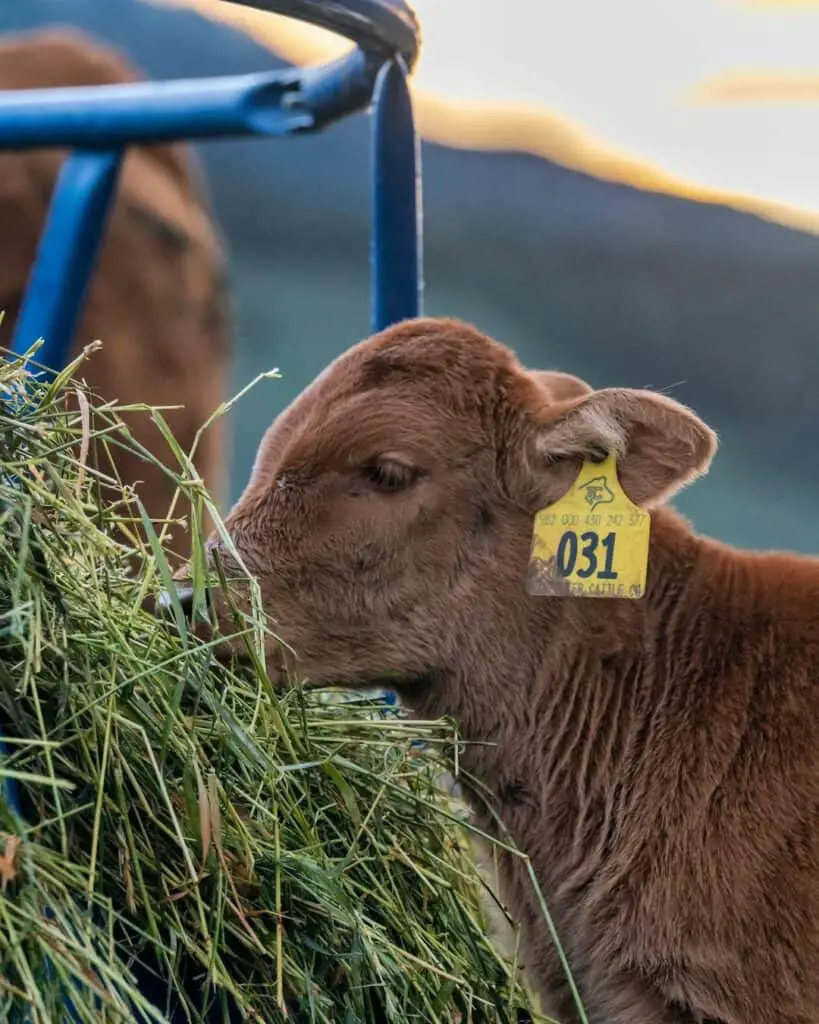
Wagyu cattle are fed so much and so frequently that they’re expected to gain weight at a rate of about 2.5 pounds per day, but never to an excessive level. What matters is that the cow is comfortable as it gets fat, as putting undue stress on its system will reduce the quality of the meat that it produces.
It takes between two and three years for wagyu cattle to reach the age where they are considered ripe for slaughter. By this point, the cow will have reached 1500 pounds. Believe it or not, this is still a longer time than it takes for most cows to become ready for slaughter in the United States.
This is largely due to the fact that the cows are treated humanely and they are not exposed to any additional substances. Steroids, growth promotants, and hormones are strictly barred from use on wagyu cattle, as these substances may adversely affect the quality of the meat, as well as how healthy it is for human consumption.
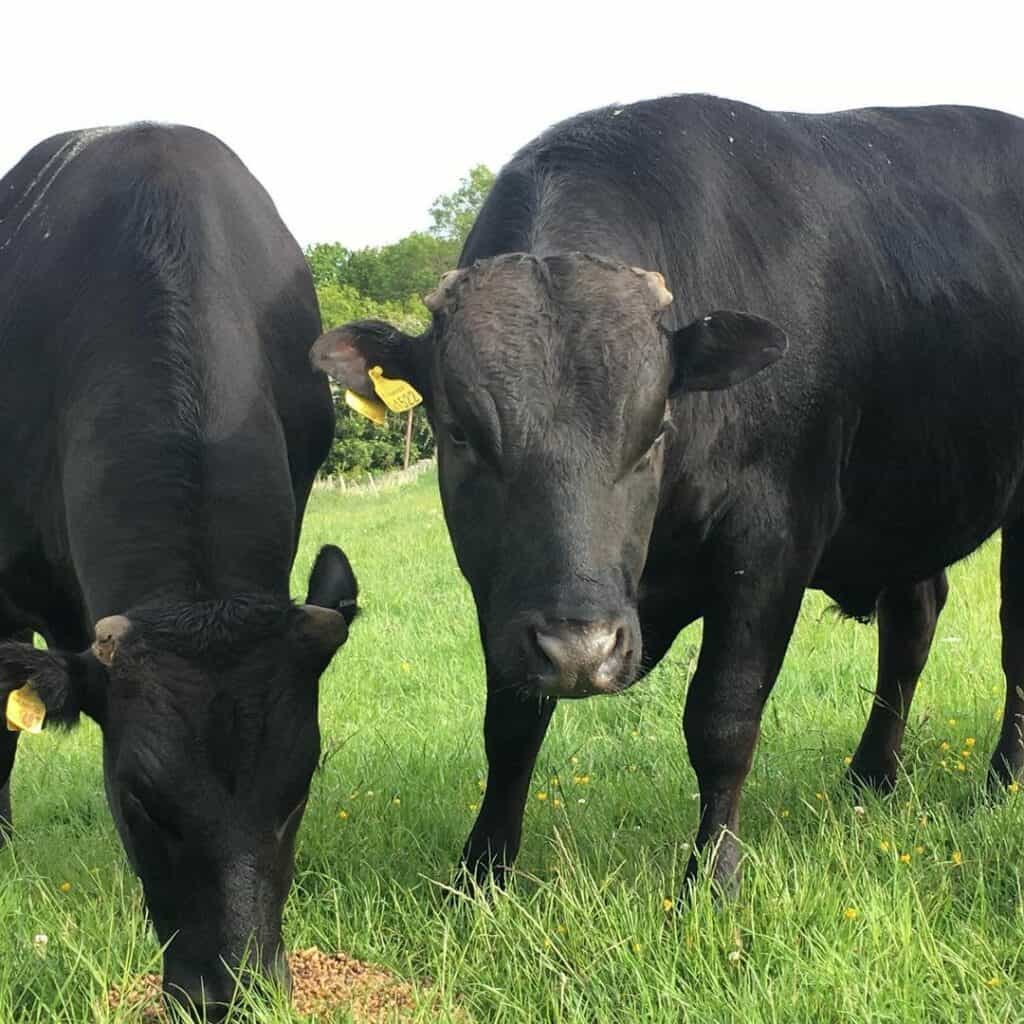
Myths About Wagyu Cattle Raising
There are plenty of myths circling around the raising and slaughter of wagyu cattle, and this is understandable when you consider its status as the best beef in the world. While some of the myths are grounded in fact, others are downright outrageous, and I’m going to take a look at myths from both ends of the spectrum.
One of the myths that is closer to reality is the one in which farmers routinely feed their wagyu cows beer to provide them with more calories and to keep them calm. While this may not be common practice in Japan, there is at least anecdotal evidence to suggest that at least some wagyu cows are fed beer.
Australian wagyu breeds are descended directly from authentic specimens brought in from Japan, and they’re typically treated even more luxuriously than their counterparts from the homeland. It has been proven that Australian wagyu cattle are fans of Cadbury chocolate.
While this chocolate may not be a staple of Australian cows’ diets, some ranches feed it to them every day. One ranch is known to feed their wagyu cows expired candy, chocolates, and even cookies at a rate of about two kilos per day! However, in Japan, tradition likely wouldn’t allow for this kind of diet to be fed to wagyu cattle regularly.
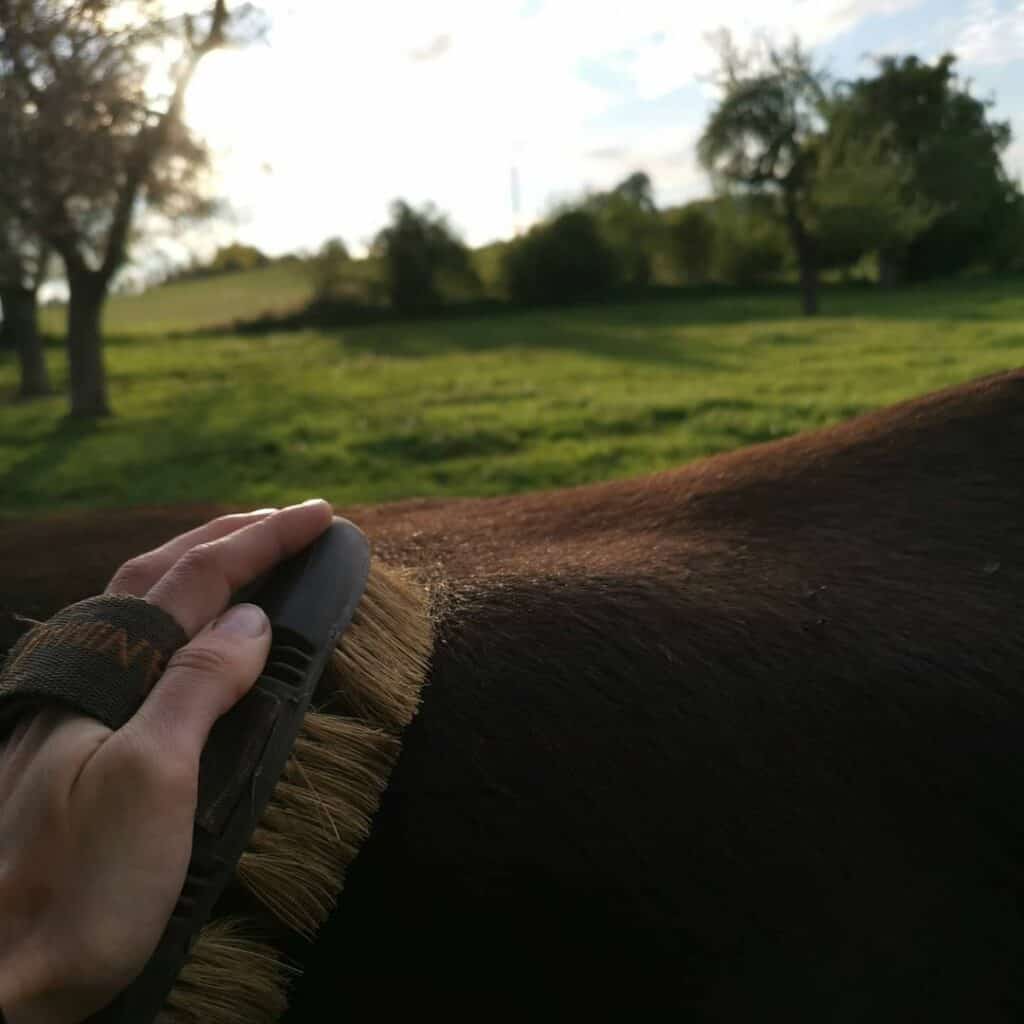
Some claim that it’s not only important to understand what is wagyu beef fed, but also their treatment. While this may not be directly related to wagyu cows’ diet, there are also myths that the cows are massaged every day. While we can’t guarantee that an enthusiastic farmer hasn’t tried massaging one of their cows, this myth probably stems from the fact that wagyu cows are often brushed using a stiff-bristled brush.
This brushing routine is designed to work the stress out of cows’ muscles and it also ensures that they can benefit from extra blood circulation. The lack of stress in the cattle’s lives ensures that they have less tense meat, contributing to a much better mouthfeel when the cow is slaughtered.